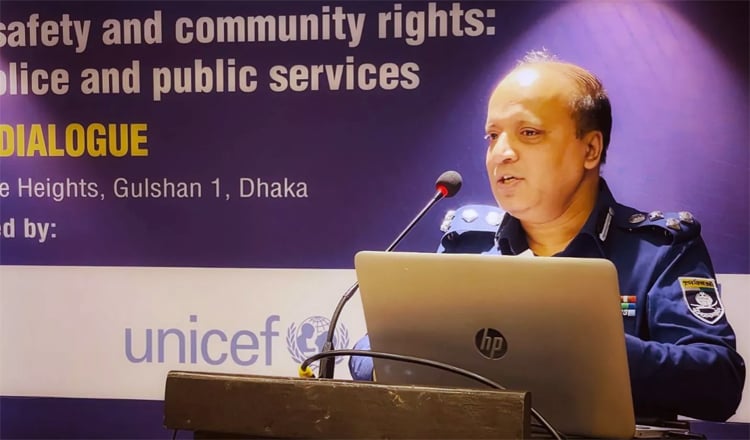News Flash
News Flash

DHAKA, Dec 23, 2024 (BSS) - A national dialogue titled "Towards Better Protection of Public Safety and Community Rights: Expectations on Bangladesh's Police and Public Services", co-hosted by UNDP in collaboration with UN Women, UNICEF, and UNFPA, was held today in Dhaka.
Speakers at the event emphasised the urgent need for structural reforms to establish a professional, people-centered, and inclusive police service in Bangladesh, a UNDP press release said.
The dialogue concluded a series of stakeholders, communities, students, experts and CSOs consultations held in Khulna, Chattogram, and Dhaka, which called for strengthening police-community relationships, legislative and human resource reforms, equitable access to justice, accountability mechanisms and leveraging technology to enhance transparency and efficiency. Participants also requested that resources, career management and service conditions within the police be strengthened.
Deputy Inspector General Quazi Zia Uddin emphasized: "Every crisis is an opportunity to reimagine, reform, and rebuild trust. True reform starts when we prioritize service over control and trust over fear."
Sonali Dayaratne, Deputy Resident Representative of UNDP Bangladesh, said, "We are committed to supporting an inclusive and consultative approach to police and justice reforms. Women, youth, and civil society must be at the center of these structural changes to rebuild independent public institutions with integrity and public confidence."
Participants outlined several actionable recommendations to enhance public safety and police accountability. They agreed on the urgent need to reform the outdated Police Act of 1861 to reflect modern democratic principles and security challenges. Strengthening collaboration between police and communities, particularly engaging youth and women, was emphasized to foster trust and shared responsibility for security.
Advancing digitized police operations through modern tools was highlighted as a means to improve efficiency, transparency, and accountability. Recommendations also included establishing independent oversight mechanisms, such as a Police Service Commission, to combat corruption and build public confidence through impartial oversight.
Participants agreed that that police reform must be synced with justice governance reforms to ensure the effective functioning of the criminal justice chain.
Ensuring equitable access to justice for vulnerable groups, including refugees and marginalized communities, was identified as a priority. Gender-sensitive training for police personnel and increasing the representation of women in law enforcement were proposed to enhance inclusivity and responsiveness. Upgrading infrastructure to better address the needs of women and children was also highlighted as an urgent requirement.
Sheela Haq, UNDP Senior Governance Specialist, presented insights into improving justice delivery mechanisms and rebuilding trust. UNICEF Child Protection Specialist Shabnaaz Zahereen shared recommendations for enhancing children's interaction with the police, emphasizing their rights and protections.
Shrabana Datta, Project Manager UN Women led discussions on gender-responsive policing, highlighting the importance of gender equity and inclusivity within law enforcement.
National Programme Officer-Gender & Human Rights of UNFPA Abu Sayed Summon delivered a keynote paper summarizing core themes and actionable points from the dialogue, reinforcing the need for comprehensive reforms.
The event underscored the collective commitment to advancing public safety and justice in line with Sustainable Development Goal 16 on peace, justice, and strong institutions.